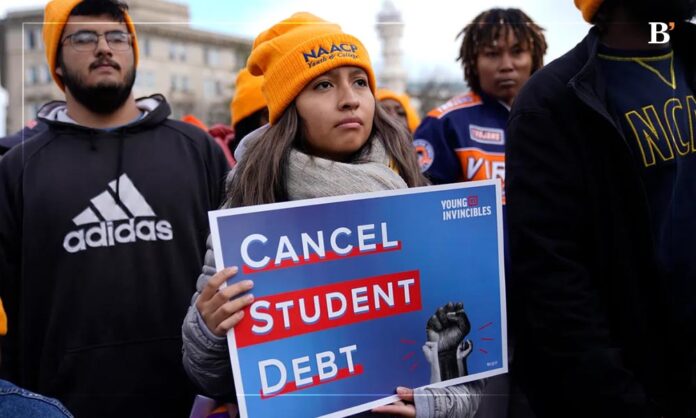Key Highlights
- Democrats in Congress continue their push to address the student debt crisis, despite Republican resistance.
- On Tuesday, a group of over 100 progressives in the House and Senate reiterated their support for President Biden’s plan to forgive student debt. It hinted at upcoming legislation to support loan relief.
- Then, on Thursday, House Democrats announced reintroducing the LOAN (Lowering Obstacles to Achievement Now) Act, which aims to lower college costs and make it easier for borrowers to pay off their debt.
The LOAN Act would double Pell Grants, improve the Public Service Loan Forgiveness program, eliminate interest capitalization on student loans, and lower and cap interest rates for new borrowers. However, the bill has not secured any Republican cosponsors and is unlikely to pass in a Republican-controlled House.
Biden’s Budget Proposal Includes Student Loan Relief
President Biden’s plan to relieve up to $20,000 in student loan debt per person is currently being deliberated by the Supreme Court. Even if the plan is approved, borrowers must still resume paying off their loans once the pandemic-era moratorium ends. To support this transition, Biden’s proposed 2024 budget includes funding to modernize the Federal Student Aid office and improve student loan servicing.
In addition to student loan relief, Biden‘s budget includes provisions to increase the maximum Pell Grant award, fund the expansion of free community college, and reinstate the expanded Child Tax Credit. James Kvaal, Education Department undersecretary, emphasized the importance of this funding to “build a higher education system that delivers on the promise of upward mobility, equity, and economic growth.”
Despite these efforts, Republicans remain resistant to any form of widespread student debt relief. Last month, a group of Republican senators filed a bill seeking to end the payment pause, and a private loan refinancing company filed a lawsuit with the same objective. The divide between Democrats and Republicans on this issue is likely to persist, with both sides jockeying for position in the lead-up to the 2024 presidential election.




